 I met Diane in person at a book signing in Topsail Beach at Quarter Moon Books. In my overzealous fangirling,
I met Diane in person at a book signing in Topsail Beach at Quarter Moon Books. In my overzealous fangirling,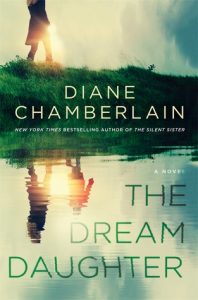 I crashed a book club photo and had to be gently shooed away. I’ve been her most awkward fan since, and she’s been the most gracious literary star. I show up for each new book’s signing / reading like a middle-aged stalker who looks so innocent (muahaha), and Diane keeps smiling and signing my new books. If only she could write super fast; I know I will love each new story. I was fortunate to receive an early copy of The Dream Daughter—my review—coming out October 2.
I crashed a book club photo and had to be gently shooed away. I’ve been her most awkward fan since, and she’s been the most gracious literary star. I show up for each new book’s signing / reading like a middle-aged stalker who looks so innocent (muahaha), and Diane keeps smiling and signing my new books. If only she could write super fast; I know I will love each new story. I was fortunate to receive an early copy of The Dream Daughter—my review—coming out October 2.
Tell me about your writing process—any tricks / nuances to keep you on track, inspirations material or abstract, where you write (Topsail!) and when.
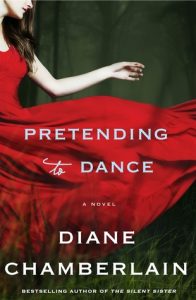 I usually write either in my Raleigh area sunroom or at my condo on Topsail Island. I generally have a year to write a book. The first few months, I think about my idea and start doing research, often visiting the area where the story takes place. I begin picturing scenes and putting them on post it notes that I move around on a big presentation board until I like the arc of the story, thus creating an outline. At the same time, I think about my characters, specifically what type of person will have the hardest time dealing with whatever dilemma I’ve come up with for the story.
I usually write either in my Raleigh area sunroom or at my condo on Topsail Island. I generally have a year to write a book. The first few months, I think about my idea and start doing research, often visiting the area where the story takes place. I begin picturing scenes and putting them on post it notes that I move around on a big presentation board until I like the arc of the story, thus creating an outline. At the same time, I think about my characters, specifically what type of person will have the hardest time dealing with whatever dilemma I’ve come up with for the story. 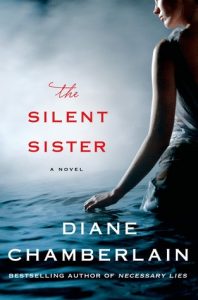 If there is no personal struggle, there is no story. I think about which characters will have a point of view in the story and will they have a first person or third person point of view and will I write the story in present or past tense. I sometimes look on the internet for pictures of people who make me think of my characters. I find this a huge help in creating characters who feel very real to me and hopefully to my readers. These are all decisions I make before I start writing.
If there is no personal struggle, there is no story. I think about which characters will have a point of view in the story and will they have a first person or third person point of view and will I write the story in present or past tense. I sometimes look on the internet for pictures of people who make me think of my characters. I find this a huge help in creating characters who feel very real to me and hopefully to my readers. These are all decisions I make before I start writing.
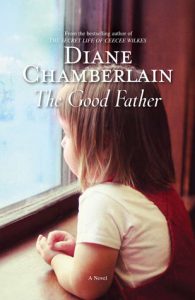 Finally, I start writing about 6 months before my deadline. I usually listen to movie soundtracks as I write because I like the emotional ups and downs of the music. I’m always doing research as I write. Also, I listen to my characters because they frequently go astray from my outline and I’ve learned to pay attention to them. I write three to five drafts. Finally, often a bit late, I turn in the book. That’s where my dynamite editor comes in. She reads the book, looking at the big picture. What works and what doesn’t? She makes many suggestions, sometimes requiring a big change in the book. I’ve learned to listen to her, and I rewrite. And perhaps rewrite yet again.
Finally, I start writing about 6 months before my deadline. I usually listen to movie soundtracks as I write because I like the emotional ups and downs of the music. I’m always doing research as I write. Also, I listen to my characters because they frequently go astray from my outline and I’ve learned to pay attention to them. I write three to five drafts. Finally, often a bit late, I turn in the book. That’s where my dynamite editor comes in. She reads the book, looking at the big picture. What works and what doesn’t? She makes many suggestions, sometimes requiring a big change in the book. I’ve learned to listen to her, and I rewrite. And perhaps rewrite yet again.
Lead me through your publishing process, as in who does what when, and your marketing responsibilities (book tours! What else?).
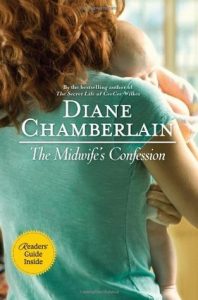 Here’s how it works. First I write a book. Then I have an agent who is responsible for finding the publisher she thinks will do the best job with that book. She is also responsible for negotiating the contract with that publisher. You can see in my answer above some of the work the editor does with regard to my book. The publisher then, of course, publishes the book. If the publisher feels strongly that they can make the book a bestseller, they will give it a lot of advertising and other support before and during publication. My publisher for the last six books, St. Martins Press, does a great deal of promotion for me. I try to hold up my end by keeping up with social media (which I enjoy), giving interviews, touring to speak to groups and do book signings, where I get to meet my readers, the best part of the process!
Here’s how it works. First I write a book. Then I have an agent who is responsible for finding the publisher she thinks will do the best job with that book. She is also responsible for negotiating the contract with that publisher. You can see in my answer above some of the work the editor does with regard to my book. The publisher then, of course, publishes the book. If the publisher feels strongly that they can make the book a bestseller, they will give it a lot of advertising and other support before and during publication. My publisher for the last six books, St. Martins Press, does a great deal of promotion for me. I try to hold up my end by keeping up with social media (which I enjoy), giving interviews, touring to speak to groups and do book signings, where I get to meet my readers, the best part of the process!
Before the Storm series
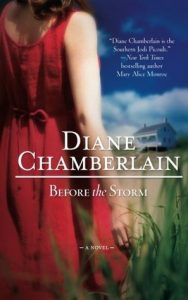
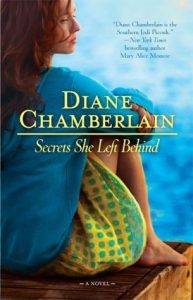
Describe your support system: groups online and IRL (MKA, another favorite author of mine)—your biggest cheerleaders…
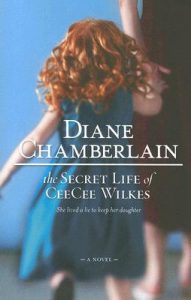 My biggest supporter is my significant other, John. He’s a photographer and understands the creative process and doesn’t complain that once a year, as deadline nears, I disappear from real life into my imagination, 24/7. Aside from him, I have many local writer friends who I get together with often. And then I have my “official group.” We call ourselves The Weymouth Seven because we originally met up at the Weymouth mansion in Southern Pines, NC, where authors are invited to work for up to two weeks each year. Now we usually meet up on Topsail Island. You’re right that Mary Kay Andrews is a big part of our group. She’s our ringleader, the one who keeps us on track during the week that we meet. Other members are mystery writer Margaret Maron, historical mystery writer, Sarah Shaber, horror and thriller writer Alexandra Sokoloff, and mystery writers, Brenda Witchger and Katy Munger. We have fun but we work hard at the same time.
My biggest supporter is my significant other, John. He’s a photographer and understands the creative process and doesn’t complain that once a year, as deadline nears, I disappear from real life into my imagination, 24/7. Aside from him, I have many local writer friends who I get together with often. And then I have my “official group.” We call ourselves The Weymouth Seven because we originally met up at the Weymouth mansion in Southern Pines, NC, where authors are invited to work for up to two weeks each year. Now we usually meet up on Topsail Island. You’re right that Mary Kay Andrews is a big part of our group. She’s our ringleader, the one who keeps us on track during the week that we meet. Other members are mystery writer Margaret Maron, historical mystery writer, Sarah Shaber, horror and thriller writer Alexandra Sokoloff, and mystery writers, Brenda Witchger and Katy Munger. We have fun but we work hard at the same time.
Keeper of the Light series



You’ve always had touches of history in your novels. Recently, you’ve opened up to historical fiction, and now sci-fi / fantasy with your latest book about time travel. How did this come about; in what ways do your life and work influence each other, and how did your previous profession prepare you for fiction writing? Also talk about secrets, their importance to you and your work, and what kind of secrets you like best to weave into your stories.
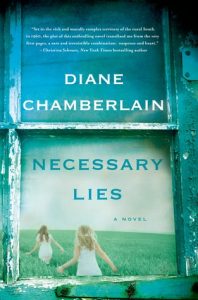 When I heard about the eugenics (forced sterilization) program in North Carolina, I knew I had to write about it. That meant setting the story during the years of the program, so I selected 1960 and thus wrote my first novel (Necessary Lies) with a totally historical setting and I found I really enjoyed it. Two books later, I decided I wanted to write about the 1944 polio outbreak in Hickory, NC during which the town built a functioning polio hospital in 54 hours (The Stolen Marriage). So I would say, if the idea that comes to me is historical, I will happily write it, but I am still perfectly happy writing contemporary books as well.
When I heard about the eugenics (forced sterilization) program in North Carolina, I knew I had to write about it. That meant setting the story during the years of the program, so I selected 1960 and thus wrote my first novel (Necessary Lies) with a totally historical setting and I found I really enjoyed it. Two books later, I decided I wanted to write about the 1944 polio outbreak in Hickory, NC during which the town built a functioning polio hospital in 54 hours (The Stolen Marriage). So I would say, if the idea that comes to me is historical, I will happily write it, but I am still perfectly happy writing contemporary books as well.
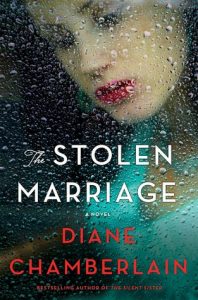 When it comes to The Dream Daughter, that is a whole different subject! For years, I had the idea that’s central in The Dream Daughter: a woman is told that her unborn baby will die, but she learns that if she’s willing to take a huge risk and travel to the future, her baby could very well live. I put this idea off for years because it is so unlike my other books, but finally, I talked to my editor and she gave me the go-ahead. The book was tremendous fun to write and the early reviews have been amazing. I’m grateful to readers who dislike time travel for giving this book a try because it’s still “vintage Diane Chamberlain” and people seem to be loving it.
When it comes to The Dream Daughter, that is a whole different subject! For years, I had the idea that’s central in The Dream Daughter: a woman is told that her unborn baby will die, but she learns that if she’s willing to take a huge risk and travel to the future, her baby could very well live. I put this idea off for years because it is so unlike my other books, but finally, I talked to my editor and she gave me the go-ahead. The book was tremendous fun to write and the early reviews have been amazing. I’m grateful to readers who dislike time travel for giving this book a try because it’s still “vintage Diane Chamberlain” and people seem to be loving it.
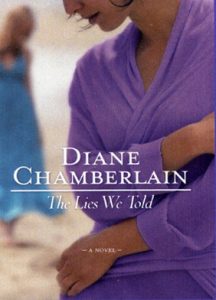 I think your question about my previous profession (clinical social work) and secrets actually go together. I worked in hospitals and then in a private psychotherapy practice with adolescents and their families, and one thing I learned is how destructive secrets can be in a family. I was fascinated by that topic, so it often appears in my stories.
I think your question about my previous profession (clinical social work) and secrets actually go together. I worked in hospitals and then in a private psychotherapy practice with adolescents and their families, and one thing I learned is how destructive secrets can be in a family. I was fascinated by that topic, so it often appears in my stories.
What do you love most about your creativity?
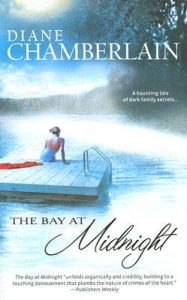 I’m very grateful for my imagination. It got me into tons of trouble as a kid, but now pays off. I might be stopped at a traffic light and see a woman pushing a baby carriage across the street and within 30 seconds, I imagine a car hitting them, and the police discover it was on purpose and there was a connection between the woman and the driver, or maybe even between the baby and the driver . . . it’s exhausting having a brain like this, but it often pays off in the end if it means I can entertain my readers.
I’m very grateful for my imagination. It got me into tons of trouble as a kid, but now pays off. I might be stopped at a traffic light and see a woman pushing a baby carriage across the street and within 30 seconds, I imagine a car hitting them, and the police discover it was on purpose and there was a connection between the woman and the driver, or maybe even between the baby and the driver . . . it’s exhausting having a brain like this, but it often pays off in the end if it means I can entertain my readers.
Connect with Diane:
Book series in order of publication
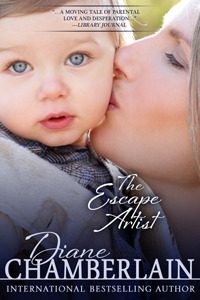
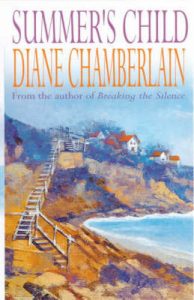
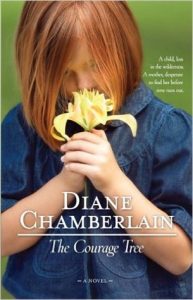
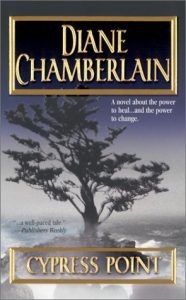
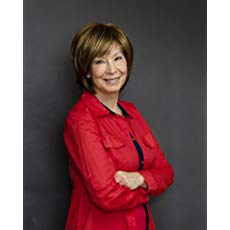 Website
Website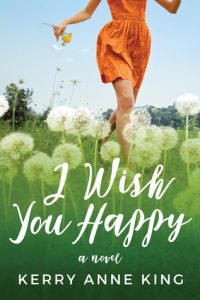 Rae’s a screwup—according to Rae. To her family and friends, she spreads herself too thin and holds unrealistic expectations for herself. When you don’t even fit into your own family, it’s hard to feel at home anywhere. Plus, peopling is hard; animals are easier. Then a woman jerks her bike in front of Rae’s car—the thump and bump of driving over a human drives Rae to feel responsible for her, though eyewitnesses say she couldn’t have avoided hitting her. The mysteriously damaged woman and a houseful of pre-weaned kittens overwhelms Rae. The romantic interest introduces her to his new-agey gran, who explains Rae to herself, guiding her onto a healthier path. This is a wonderful story of the complexities of life, the importance of connecting with others, and how everyone must find their own way, not to mention that communication is key. King’s writing draws you in and wraps you in a big, fluffy blanket of ambiguities, yet dear reader leaves her work somehow better equipped to traverse these gray areas. King’s talent makes the words disappear as the story flows through the reader, while letting us know that often others see us more clearly than we can see ourselves. Highly recommended!
Rae’s a screwup—according to Rae. To her family and friends, she spreads herself too thin and holds unrealistic expectations for herself. When you don’t even fit into your own family, it’s hard to feel at home anywhere. Plus, peopling is hard; animals are easier. Then a woman jerks her bike in front of Rae’s car—the thump and bump of driving over a human drives Rae to feel responsible for her, though eyewitnesses say she couldn’t have avoided hitting her. The mysteriously damaged woman and a houseful of pre-weaned kittens overwhelms Rae. The romantic interest introduces her to his new-agey gran, who explains Rae to herself, guiding her onto a healthier path. This is a wonderful story of the complexities of life, the importance of connecting with others, and how everyone must find their own way, not to mention that communication is key. King’s writing draws you in and wraps you in a big, fluffy blanket of ambiguities, yet dear reader leaves her work somehow better equipped to traverse these gray areas. King’s talent makes the words disappear as the story flows through the reader, while letting us know that often others see us more clearly than we can see ourselves. Highly recommended!